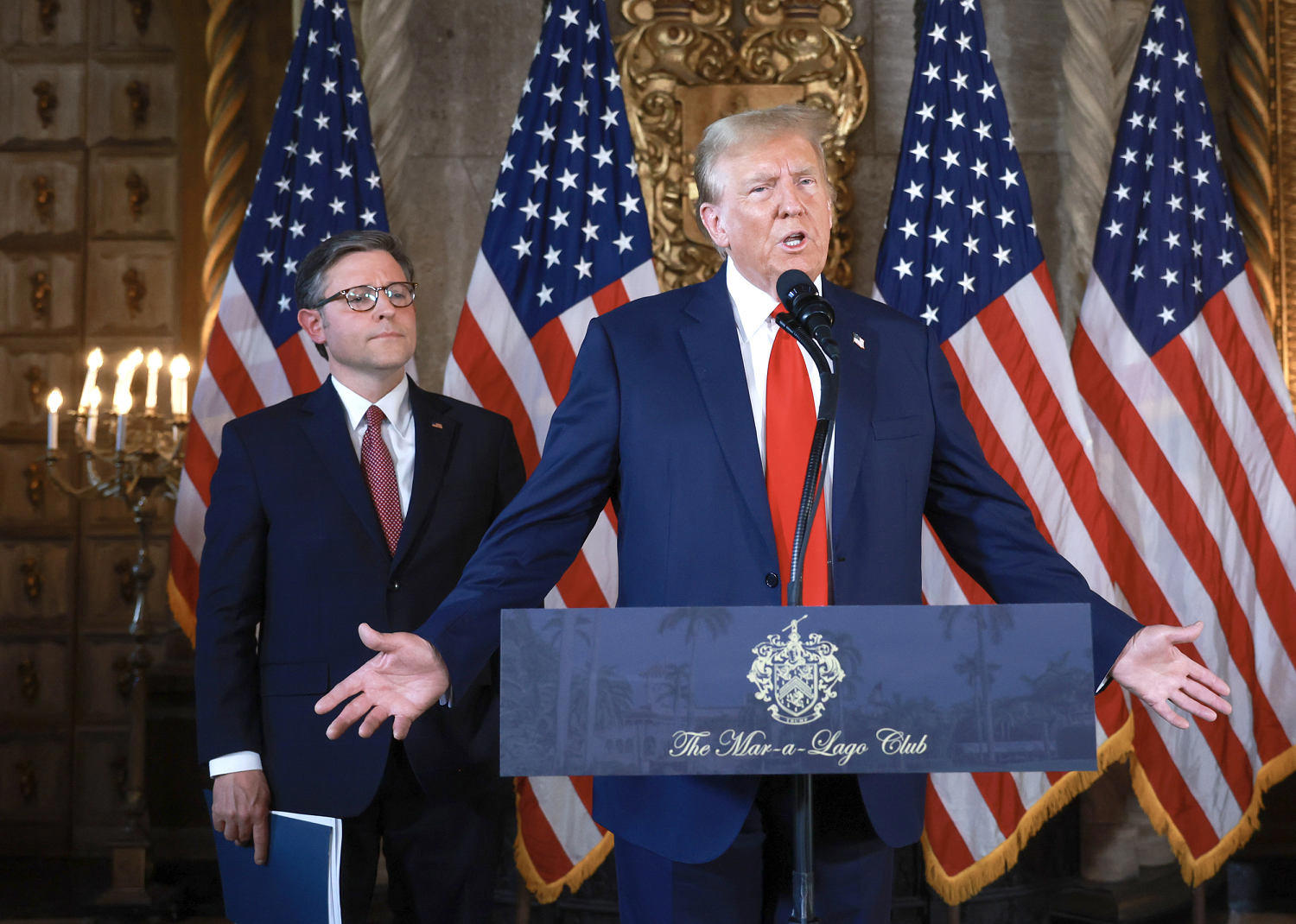Why Republican dodges about the 2020 election (still) matter

House Speaker Mike Johnson’s record related to the 2020 presidential election is plainly indefensible. As longtime readers might recall, it was the Louisiana Republican, for example, who helped spearhead an ill-fated effort to convince the Supreme Court to keep Donald Trump in power despite the voters’ verdict — shortly before he voted with his party to reject certifying the results of a free and fair election. Johnson also echoed some of the wilder conspiracy theories about the race
Nearly four years later, the far-right GOP leader still can’t bring himself to say out loud that the rightful winner of the 2020 race was, in fact, the rightful winner of the 2020 race. The Washington Post reported:
House Speaker Mike Johnson (R-La.) wouldn’t acknowledge Sunday that Joe Biden won the 2020 election when asked directly about the election denialism that former president Donald Trump continues to promote on the campaign trail. During a testy exchange on ABC News’s “This Week,” host George Stephanopoulos asked Johnson if he could say “unequivocally that Joe Biden won the 2020 election and Trump lost.”
Johnson refused to give a straight answer, saying only that “this is the game that is always played by mainstream media with mainstream Republicans. It’s a gotcha game.”
The House speaker was willing to acknowledge that President Joe Biden is, in fact, the president — hardly a bold concession on the congressman’s part — but Johnson wouldn’t say that the Democratic incumbent was the legitimate victor in the nation’s most recent presidential election.
“When we’re talking about the future,” Johnson concluded, “we’re not going to talk about what happened in 2020.”
His party’s vice presidential nominee, Sen. JD Vance of Ohio, spent most of last week saying effectively the same thing, echoing the talking point again on Friday afternoon.
I suspect there will be some voters who might find this vaguely persuasive. With a critically important election four weeks away, why focus on the last election from four years ago? Why not focus on the near future instead of the recent past?
A few reasons, actually.
Right off the bat, credibility and accountability still matter. It’s not as if Johnson, Trump, Vance, and their partisan allies have expressed some degree of regret or contrition for launching an unprecedented plot to overturn the results of a national American election. The more they refuse to acknowledge their own wrongdoing and alleged crimes, the less voters can trust them to honor future elections and the rule of law.
Relatedly, it’s a mistake to see this question as inherently retrospective. Both members of the GOP’s national ticket have refused to accept the legitimacy of the 2020 race. The same goes for the party’s House speaker. Meanwhile, a CNN report noted over the weekend, “At least 23 of this year’s 51 Republican nominees for governor, state elections chief or the US Senate have rejected or contested the legitimacy of Joe Biden’s 2020 victory over Trump.”
The line between the recent past and the present, in other words, is quite blurry.
But even if we put all of that aside, it’s not “the media” that keeps talking about the legitimacy of the 2020 election; it’s the Republican Party’s national nominee.
“We won. We won,” the former president declared as recently as Thursday. “We did win. It was a rigged election. It was a rigged election.” A day earlier, Trump wrote on his social media platform, “I didn’t rig the 2020 Election, they did!” pointing to a version of reality with no resemblance to our own.
What’s more, as we discussed last week, the former president also refuses to say whether he’ll accept the results of this year’s contest. On a routine basis, he also falsely tells the public that his foes are cheaters and election results are suspect — unless he says otherwise.
As NBC News reported, Trump has also begun referring to just about everything as “election interference,” evidence be damned, as part of a multifaceted effort to pre-emptively delegitimize the 2024 race, just in case he loses.
To hear the House speaker tell it, this entire conversation is unnecessary. Those who care about democracy should know better.
This post updates our related earlier coverage.
This article was originally published on MSNBC.com


